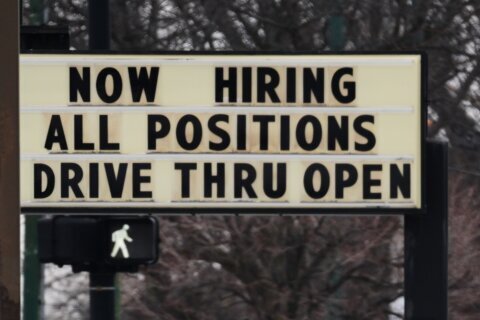Recreational use of marijuana becomes legal in Maryland July 1, making it the 21st state to legalize its use for recreational purposes. While some rules regarding pot and the workplace are clear, others are still hazy.
Employers in Maryland will still be permitted to test for marijuana and refuse to hire a candidate, or terminate an employee that tests positive, based on their own company policies. The federal illegality of marijuana allows employers to continue testing for pot.
“They can test preemployment, they can test random, they can test in the event of a workplace accident,” said Darla McClure, an employment law attorney and partner at Rockville-based Stein Sperling. “There is no restriction on testing in Maryland.”
Maryland legalized medical marijuana in 2014, but that’s not a workplace pass either. If marijuana use is against company policy, use of pot for a disability is not covered by the Americans with Disabilities Act, which Maryland law follows.
“Having a medical marijuana card is not considered a reasonable accommodation for use in the workplace, in the event that somebody has a disability,” McClure said.
A bill that would have prohibited employers from disciplining, firing or taking adverse action against an employee with a medical marijuana card failed to make it out of committee in the Maryland General Assembly. However, such a law is on the books in Virginia, and in the District a similar law extends those protections to employees who recreationally use marijuana and are not just a medical cardholder.
“I believe Maryland will soon look toward enacting laws similar to other jurisdictions to prohibit employers from discriminating against employees who test positive unrelated to a workplace accident or suspect drug use while at work,” she said.
Legalized recreational use leaves many employers with decisions to make, and some are already deciding to update their policies.
“I have a lot of my clients that are now taking out marijuana from the panel of drugs that are being tested,” McClure said. (The standard “Five-Panel” drug test screens for marijuana, amphetamines, cocaine, opiates and PCP).
“Many of my private sector clients are doing away with random testing purely for recruitment and retention reasons,” she said.
Testing for drugs in the event of a workplace accident is a hard rule for many companies, but it has always been problematic, and going forward, McClure believes more accurate, real-time tests need to be developed.
“If you drug test in the event of a workplace accident, and it comes up positive for marijuana, we don’t know if that is because they were impaired during the time of the workplace accident or because they consumed marijuana a week ago,” she said.
For now, McClure suggests employers should review their policies. Many will now treat marijuana use more like alcohol use, prohibiting being impaired at work, but dropping marijuana for preemployment and non-accident related workplace testing.








